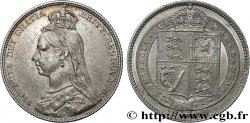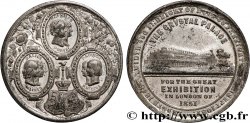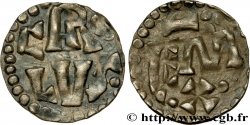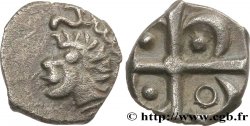fme_864932 - GREAT-BRITAIN - VICTORIA Médaille du Crystal Palace - Victoria
55.00 €(Approx. 62.70$ | 47.30£)
Quantity
Add to your cart

Type : Médaille du Crystal Palace - Victoria
Date: 1851
Mint name / Town : UK, Londres
Metal : tin
Diameter : 27 mm
Orientation dies : 12 h.
Weight : 6,80 g.
Edge : cannelée
Puncheon : sans poinçon
Coments on the condition:
Patine grise hétérogène, présentant des coups et rayures. De l’usure sur les hauts reliefs. Taches d’oxydation au revers. Du brillant de frappe est encore visible
Obverse
Obverse legend : VICTORIA - REGINA.
Obverse description : Tête de profil à gauche de la reine Victoria.
Reverse
Reverse legend : THE CRYSTAL PALACE / LONDON 1851 // PROPOSED BY / H. R. H. PRINCE ALBERT / - / COST L. 150000..
Reverse description : Vue du crystal palace et légende en 3 lignes à l’exergue.
Commentary
La Great Exhibition of the Works of Industry of all Nations (grande exposition universelle des travaux de l'industrie de toutes les nations) de 1851 fut la première des Expositions universelles. Elle eut lieu du 1er mai au 15 octobre 1851 à Londres. Elle marqua le sommet de la puissance britannique d'époque victorienne.
Le Crystal Palace (en français : « palais de cristal ») était un vaste palais d'exposition en fonte et verre d'abord édifié à Hyde Park pour abriter la Great Exhibition de 1851, la première des expositions universelles. Il fut par la suite démonté et reconstruit, sous une forme agrandie, au sud de Londres, dans le quartier qui porte encore son nom. Il brûla en 1936. Le Crystal Palace fut un haut lieu touristique, qui attirait une population issue de tous milieux sociaux. Sa technique de construction en éléments standardisés préfigure celle de la préfabrication en architecture.
Le nom de « Crystal Palace » lui fut donné par le magazine satirique Punch. Le Crystal Palace Football Club a été formé par des ouvriers du palais..
Le Crystal Palace (en français : « palais de cristal ») était un vaste palais d'exposition en fonte et verre d'abord édifié à Hyde Park pour abriter la Great Exhibition de 1851, la première des expositions universelles. Il fut par la suite démonté et reconstruit, sous une forme agrandie, au sud de Londres, dans le quartier qui porte encore son nom. Il brûla en 1936. Le Crystal Palace fut un haut lieu touristique, qui attirait une population issue de tous milieux sociaux. Sa technique de construction en éléments standardisés préfigure celle de la préfabrication en architecture.
Le nom de « Crystal Palace » lui fut donné par le magazine satirique Punch. Le Crystal Palace Football Club a été formé par des ouvriers du palais..







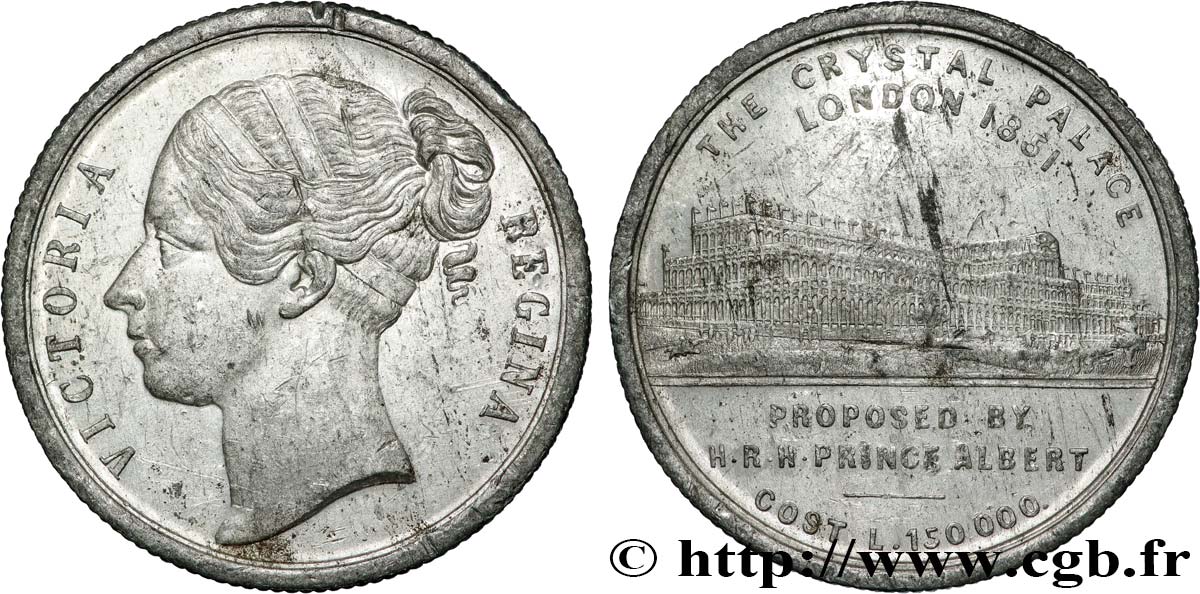
 Report a mistake
Report a mistake Print the page
Print the page Share my selection
Share my selection Ask a question
Ask a question Consign / sell
Consign / sell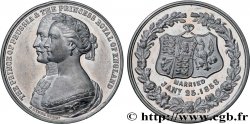
 Full data
Full data


